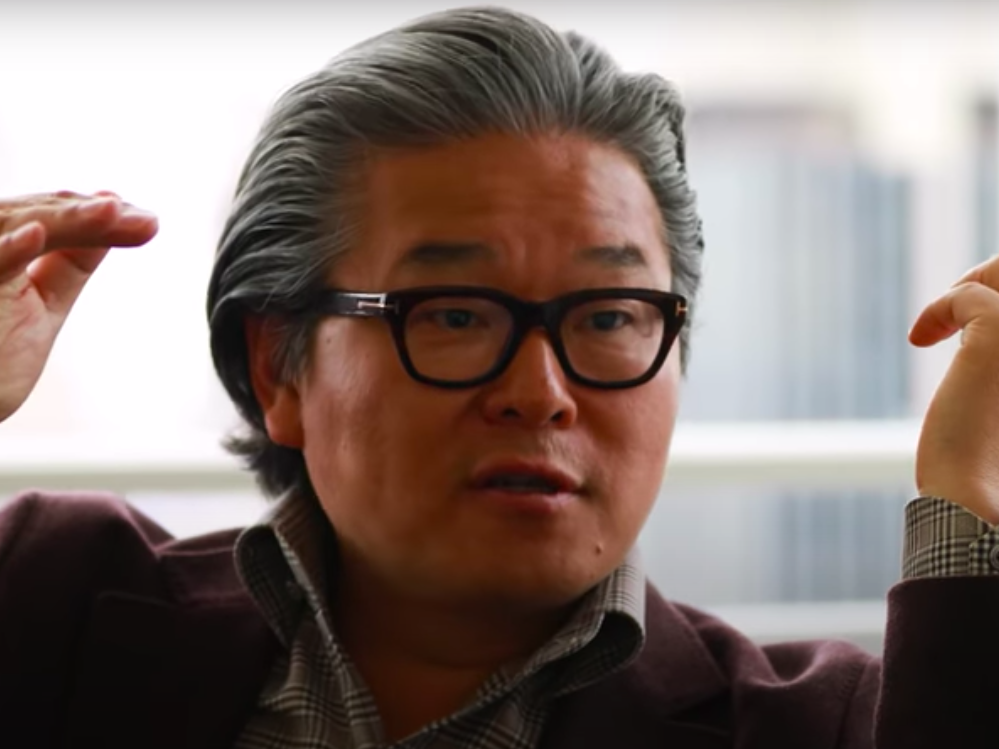- On Wall Street if the right people say you’re “The Guy” it’s amazing what you can get away with.
- Bill Hwang is the latest example of “The Guy,” even though he paid millions for securities violations and was banned from trading in Hong Kong.
- Obviously this is stupid and greedy, and from time to time it catches up with everyone. Whoops.
- This is an opinion column. The thoughts expressed are those of the author.
In Wall Street’s cult of conformity, having the right pedigree and a king’s ransom of money to play with can turn anyone into an investment bank Brahmin – someone prime brokers would be privileged to service with barely a question asked. Notice, though, that nowhere in that sentence did I mention skill or integrity.
So it was with Sung Kook “Bill” Hwang, whose reckless trading for his family office, Archegos Capital Management, just set off a $35 billion fire sale across the market. The banks he worked with – like Credit Suisse and Nomura – saw their stocks fall as much as 14% and 16% respectively on Monday as they warned investors of billions in losses. There are more players involved too. It is still unclear which banks are holding what, and the companies Archegos invested in – like Viacom and Discover – are being punished as well.
There is one main reason that this happened, and it’s a cultural reason. Hwang, over the course of his career, had managed to become “The Guy” – and “The Guy” gets to do what he wants regardless of whether or not it makes sense, is clearly dangerous, or would get people in trouble even with the half-sleeping regulators at the SEC.
Some advice: Never be impressed
Hwang’s pedigree is about as gilded as it gets in the hedge fund world. He is a Tiger Cub, which means he was trained and backed by legendary hedge fund manager Julian Robertson. He ran Tiger Asia, which had amassed $5 billion in assets under management at its peak. In a world of men and women who want to be rich, this suggests that Hwang can walk on water.
And if that were the end of Hwang’s story, the margin call he received would be shocking, but it’s not. Tiger Asia shut down in 2012, and Hwang was banned from trading securities in Hong Kong for four years, after he and the firm were forced to pay a $44 million fine to settle civil allegations of insider trading.
Tiger Asia admitted guilt in 2012 on criminal fraud charges, but Hwang did not - so he turned his wealth into a family office and (apparently) learned absolutely nothing about judging risk vs. reward.
Ask any British banker and they'll tell you there's no bigger red flag than being banned in Hong Kong. That alone should've blacklisted Hwang permanently. But he quickly had the red carpet rolled out for him at banks all over The Street. According to reports, banks allowed him to lever his positions up to eight times - so for every security he borrowed, he was loaned seven more.
Not only did these banks let Hwang trade stocks, they levered him up to the hilt and let him play with opaque swaps - essentially buying products derived from stocks without actually owning the companies' underlying stock itself - that allowed him to move in and out of companies unnoticed. By using these derivatives, Hwang was also able to avoid the short swing profit rule that prohibits insiders - in this case, a shareholder who owns over 10% of the company - from taking short term profits.
If anyone should be hauled in front of Congress and asked about this shambolic mess, it's the bankers. Banks are supposed to follow know your customer/client (KYC) guidelines. That means they are supposed to use their best judgement to determine if someone might be too reckless, unfit to trade in size.
There are more lessons to take from this on the regulatory side too. Perhaps in a more sensible world someone banned from trading securities in Hong Kong would not be able to run billions in New York City. Perhaps in that same world individuals who commit white collar crimes would be forced to admit guilt. But we don't live in that world.
Instead, we live in a world where the banks let someone who was banned from trading in Hong Kong and who paid millions in fines for securities violations to lever up on derivatives that would let him run around the market undetected because he knew the right guys, who said that he was the right guy.
Some advice: Risk tolerance v. Risk management
I do not need to tell them this because they know it, but the bankers who let this happen are clowns. As one executive at a bank with exposure to Hwang told The Financial Times: "It's pretty hard for me to defend why we loaned him so much."
This incident is hard to defend, but not hard to explain. The prime brokers in this banker's unit yet again fell for "The Guy" fallacy. They saw Hwang's pile of cash and they got greedy knowing the business they could do. They saw his resume and his appetite for leverage and confused incredible risk tolerance for incredible risk management. These things are not the same.
Just because someone can handle driving at 120 mph doesn't mean they should. And in fact the best money managers can move and think at that speed, but their best and most valuable skill is knowing exactly how to avoid situations that force them to do so. Obviously what I'm saying is not sexy - and for that I apologize - but the most valuable person that could've been had in this Hwang fiasco was a near-retirement age compliance officer with "F--- You money." That person might have saved the stock market a lot of pain here.
On the other hand, there will always be people - like Hwang's old mentor, Robertson - who still think Hwang is "The Guy." This is especially dangerous because Robertson has a particular kind of Wall Street power of transubstantiation. He can turn someone into "The Guy," or at least advocate for someone to keep their title no matter what they do. This revisionism happens the second a big money maker is banished from Wall Street, and it never ends. According to the FT, Goldman started working with Hwang in 2020 after years of internal lobbying to remove him from the bank's blacklist.
It's likely the same advocacy that led the the SEC, under Trump-era Chairman Jay Clayton, to vacate the order prohibiting Hwang "from associating with a broker, dealer, municipal securities dealer, municipal advisor, transfer agent, or nationally recognized statistical rating organization." You can't keep a good "The Guy" down forever.
Ultimately that means that in a few months, when all this drama has settled down, someone may suggest that Hwang is a person clients should give their money to. Hopefully they Google him first.

